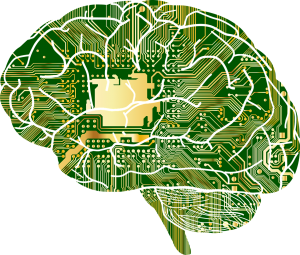The science behind music’s healing power is linked to its predictability and patterns, which engage the brain more fully than other forms of therapy. When you speak, for example, you only use one side of your brain, while singing employs both sides. By Crystal Hammon. Adapted from Classical Music Indy’s NOTE Magazine.
Music Therapy: More Than Balm for the Soul
By Crystal Hammon
If Lindsey Wright is successful, she works herself right out of a job. A young man with autism will overcome his vocal idiosyncrasies and serve as a best man at his sister’s wedding. A girl with cerebral palsy will, for the first time, have the motor skills to type her own homework. A stroke victim will recover her speech and return to work. Eventually, all these clients could outgrow the need for Wright’s services.
“As people learn about the benefits of music therapy, it’s in high demand,” says Wright, who serves as executive director of music therapy at Opportunities for Growth, an agency that delivers support services in central Indiana to people with intellectual disabilities. Almost half their clients are affected by autism. At any given time, they have at least 150 people on a waiting list to receive music therapy.
Wright leads a team of board-certified music therapists who use music and musical activities to develop skills that help people function and pursue a rewarding life. They are part of a growing profession that requires a minimum of a bachelor’s degree in music therapy and a credential issued by the Certification Board for Music Therapists. At least six universities in Indiana offer undergraduate degrees in music therapy, and there are two masters programs—one at St. Mary of the Woods and one at Indiana University-Purdue University Indianapolis.
As with any kind of therapy, Wright says music therapy is only effective if people are willing to do the work. The pleasure associated with music increases the likelihood of enthusiastic participation. “We see a lot of improvement because music is very motivating,” she says.
The science behind music’s healing power is linked to its predictability and patterns, which engage the brain more fully than other forms of therapy. When you speak, for example, you only use one side of your brain, while singing employs both sides. This, in part, explains why stroke victims recover speech, motor and cognitive skills more quickly when music therapy is combined with traditional treatment.
The concept of music therapy isn’t new. It began when musicians started working with World War I and II veterans who had post-traumatic stress. Today it’s considered standard care for people with brain injuries, Parkinson’s disease, Alzheimer’s disease, pain, autism, depression, cerebral palsy, sensory processing disorder, chronic or terminal illness, trauma and a host of other health conditions.
The science behind music’s healing power is linked to its predictability and patterns, which engage the brain more fully than other forms of therapy.

There is a growing body of neuroscience research to prove that music is more than just balm for the soul. In fact, Wright says the volume of research devoted to music therapy and its effects on the brain now outstrips that of its nearest cousin—occupational therapy. Music therapists hope these studies will improve health care and expand access to music therapy.
Despite its effectiveness for treating many conditions, music can be detrimental for some patients with neurologic disorders, compromised communication or trauma—one of the many reasons it’s important to receive treatment from a properly trained music therapist.






I’m writing a novel titled A Soul’s Warfare: Recovery in which a boy wants to study music therapy to help his older brother who has post-traumatic stress disorder. Patrick’s music therapy later helps the brother who has had brain surgery and develops aphasia.